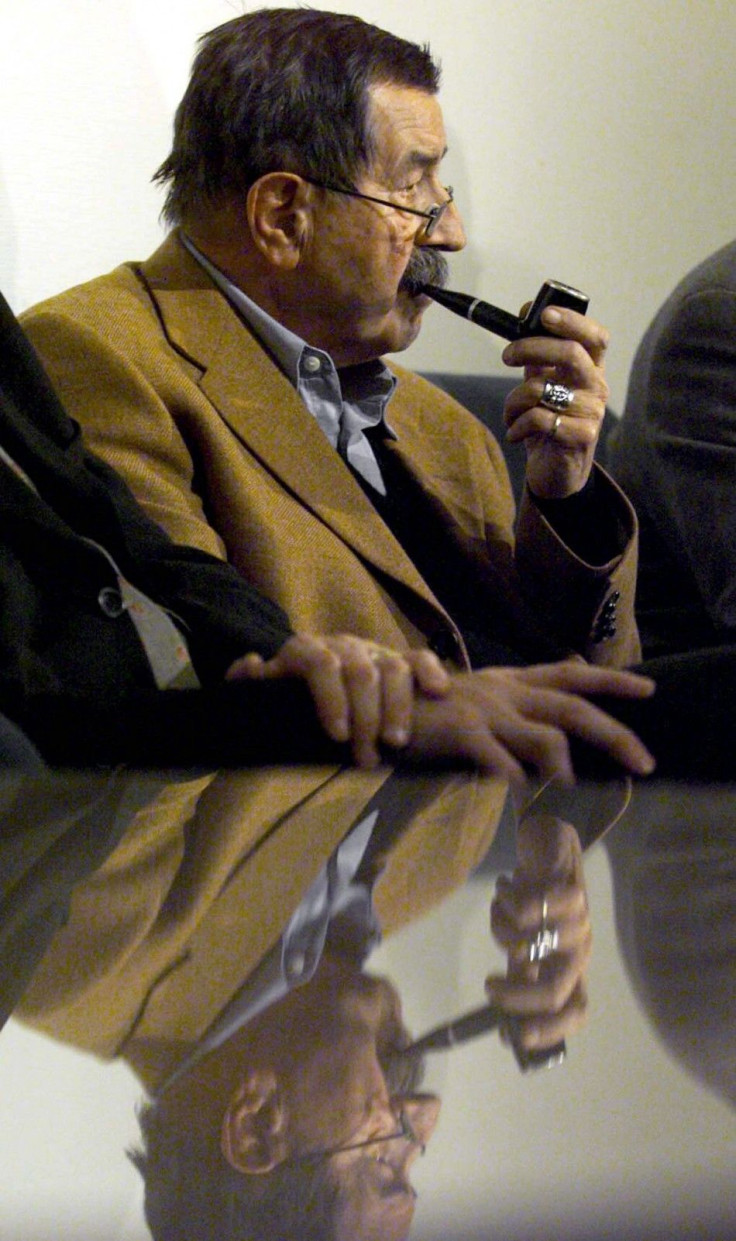Gunter Grass Poem ''What Must Be Said' Condemns Israel, Defends Iran, Infuriates Germans

What Must Be Said, a poem published by German author Günter Grass on Wednesday, is drawing sharp criticism for its condemnation of Israel.
The poem asserts that Israel jeopardizes world peace by claiming the right to a preemptive strike against Iran. Throughout the verses, which were published in German, Grass rhetorically questions why he waited so long to speak out.
Why do I only say now, aged and with my last ink: the atomic power Israel is endangering the already fragile world peace? reads the seventh stanza.
Gunter Grass's poem is like a spark in a powder keg, inflaming an already explosive worldwide debate encompassing politics, religion, deep-seated prejudices, historical narratives and existential threats.
Israel claims that Iran's nuclear program has the objective of developing nuclear weapons, and Israeli Prime Minister Benjamin Netanyahu has said that all options are on the table to prevent this from happening. We have waited for diplomacy to work. We have waited for sanctions to work. None of us can afford to wait much longer, he said in Washington D.C. last month. Israel is widely assumed to have nuclear weapons, though it has never admitted it officially.
Iran, meanwhile, claims that its nuclear program is for peaceful purposes like energy and medicine. Western powers generally agree that Tehran is years away from developing a usable nuclear warhead, but Tehran is notorious for resisting international efforts to inspect its nuclear facilities. A report released by the International Atomic Energy Agency in March suggested that research conducted in Iran may be on the nuclear weapons track. Suspicions are high, as Iranian President Mahmoud Ahmadinejad has called for the destruction of Israel.
Grass said that he was motivated to write the poem when he learned that Germany had signed a contract to supply a Dolphin-class submarine to Israel. This would be the sixth such exchange, reports The Guardian. Israel has already received three of these submarines from Germany, and two more are already scheduled for delivery. These submarines are capable of -- though not exclusively used for -- carrying nuclear weapons.
Condemning Germany's support for Israel, Grass argued that there should be unhindered and permanent control of Israel's nuclear capability and Iran's atomic facilities through an international body.
Most of the furious backlash against the poem asserts that Iran, not Israel, is the primary aggressor in the standoff between the two nations.
Günter Grass is turning the situation upside-down by defending a brutal regime that not only disregards but openly violates international agreements for many years, said Deidre Berger, director of the American Jewish Committee in Berlin, to The Guardian.
What must be said is that it is a European tradition to accuse the Jews before the Passover festival of ritual murder, said a statement from the Israeli Embassy in Berlin.
Gunter, an 84-year-old novelist and activist who was awarded a Nobel Prize for literature in 1999, has been called the conscience of a country, according to a profile in the New York Times. An active Social Democrat, Mr. Grass has prided himself on stirring contentiousness from a left-wing perspective. In novels, plays, essays and newspaper interviews, he has often told Germans what they did not want to hear: about their history, about their politics, even about themselves.
Grass's reputation has suffered in recent years due to the fact that he served in the Waffen SS under Hitler, late in World War II. The author shocked many of his readers by admitting to this military service in a 2006 biography, and many critics of the What Must Be Said have not forgotten.
Grass pulled the wool over the eyes of the German people and the world for 60 years, hiding his participation in the Waffen SS. Now he is trying to pull the wool over the world's eyes about an Iranian regime that threatens to destroy Israel, and is building the capability to achieve its aim, said David Harris, executive director of the American Jewish Committee in a press release.
Grass seems to refer to his Waffen SS days in the sixth stanza of his poem, where he wonders whether his own angst over his tarnished past prevented him from criticizing the State of Israel sooner.
Grass knew that speaking out might earn him widespread disdain, and said as much in the fourth stanza of What Must Be Said. Now, his predictions are coming true; he has already been condemned in major German publications including Die Welt, Der Spiegel and Tagesspiegel.
© Copyright IBTimes 2025. All rights reserved.






















